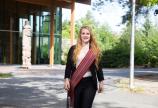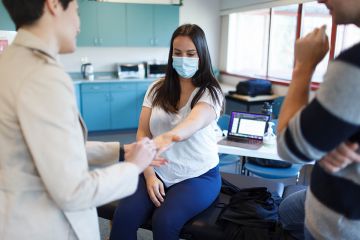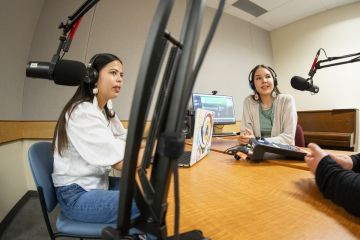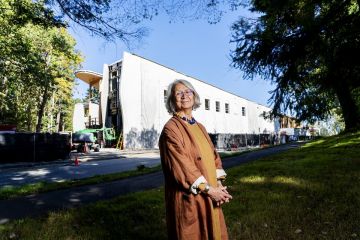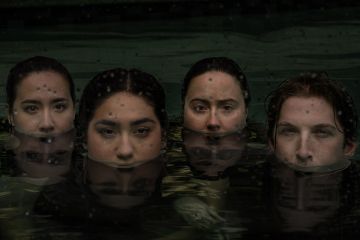Indigenous resurgence in UVic tri-faculty
Science, Humanities, Social Sciences
- Dorothy Eggenberger
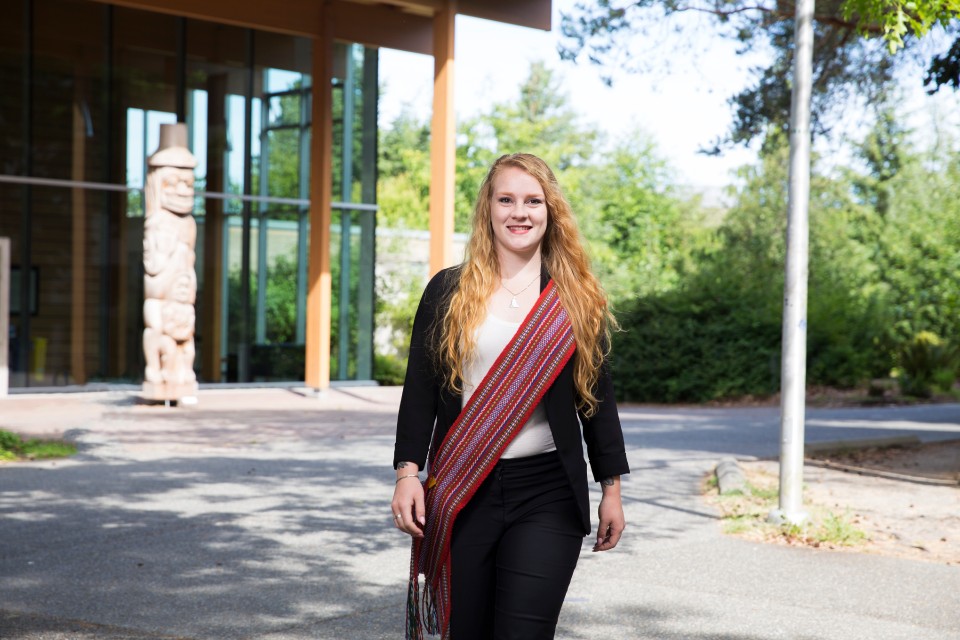
Lydia Toorenburgh joined the Faculties of Science, Social Sciences and Humanities as the Indigenous Resurgence Coordinator in December 2020. The new position, currently a three-year term, is another step towards the Indigenization of UVic. Toorenburgh will work with staff and faculty to forge systemic change, while also providing support to Indigenous students.
No stranger to UVic, Toorenburgh completed her bachelor’s in anthropology here, worked as an Indigenous Student Recruitment Officer for a year, and is currently pursuing her master’s degree, also in anthropology. As a graduate student, she is using audio-recording and walking methodologies to learn how Indigenous people with lower levels of English literacy interact with and access services in the health care system.
Toorenburgh is Cree-Métis and mixed settler on her mother's side and a first-generation Dutch immigrant on her father's side. She says balancing these three different identities has played an important role in her work and studies.
Q&A with Indigenous Resurgence Coordinator Lydia Toorenburgh
Q. What role will you play as the Indigenous Resurgence Coordinator?
A. There are three main components of this role.
The first is to support the administration on how to better understand and implement Indigenization and decolonization. I spend a lot of time working with the associate deans of the three faculties.
The next component is to support current students. When we return to campus, I’ll support our tri-faculty Indigenous students by organizing events and referring them to on- and off-campus resources.
The third component, similar to the first, is to support faculty and staff on Indigenization and decolonization. I’ll organize events, support Indigenous initiatives, and work with equity, diversity and inclusion (EDI) committees.
Q. Could you explain the terms Indigenization and decolonization?
A. Indigenization is the process of naturalizing Indigenous knowledge systems. Decolonization is the process of deconstructing colonial ideologies of the superiority of Western thoughts and approaches. At UVic, we want to weave Indigenous knowledge and approaches together with Western knowledge systems so learners can come to understand and appreciate both.
Q. What is an example of weaving together Indigenous and Western knowledge systems at UVic?
A. There is a lot of conversation around how to decolonize and Indigenize the curriculum. I believe one of the best ways is to partner with the community, where the classes and coursework support those pre-existing relationships.
At UVic I was able to build on the community partnerships of my teachers. As an undergraduate student, I contributed to a video series that showcase local Indigenous artists at the invitation of Dr. Andrea Walsh, part of a directed studies course. As a graduate student, I had the privilege of being taught by Dr. Brian Thom who has worked with the Cowichan Nation for many years. Because of that strong partnership our class joined The Commemorating Ye'yumnuts Project to create teaching resources for the sacred ancestral site, Ye’yumnuts. In both instances, I was able to earn credits, receive mentorship from my professors on how to approach this important work, while also making practical contributions to my field and our local community.
Academia at the service of the community is my value as an Anthropologist, and I carry that into this role. Decolonizing the academy is not just about internal change, it is also about breaking down the walls of the university. We must do more than invite Indigenous communities onto our campus, into our classrooms, and into our leadership circles. We must also take our time, skills, and bodies out into the community.
Q. What do you hope to accomplish in this role?
A. I want my work to have a resounding impact on the kind of environment we work in and learn in here at UVic.
I’d like to see movement within the faculties towards decolonial processes, like preferential and limited hiring, and training to build a more diverse workplace and gain Indigenous expertise. I’d also like to see the integration of Indigenous knowledge systems into the curriculum. Change can be gradual, but I want to see movement toward those goals.
I also want to prioritize supporting students. There are times when just sending the right email to a student directing them to the right resources can be a real success for that student. I want to have as much positive contact with students as possible.
Q. What does ‘resurgence’ mean to you?
A. I’m always learning what resurgence looks like in relation to place, time, and community. I’m not the authority, just one person trying to support that work.
For me, resurgence right now is community-level events and projects. Resurgence means supporting and returning energies to Indigenous peoples. It’s about critical action and critical learning for both Indigenous and non-Indigenous Peoples to build stronger relationships and a stronger community.
Resurgence is about working with Indigenous partners so they can thrive.
Photos
In this story
Keywords: Indigenous, community, staff, administrative, alumni
People: Lydia Toorenburgh
Publication: The Ring

